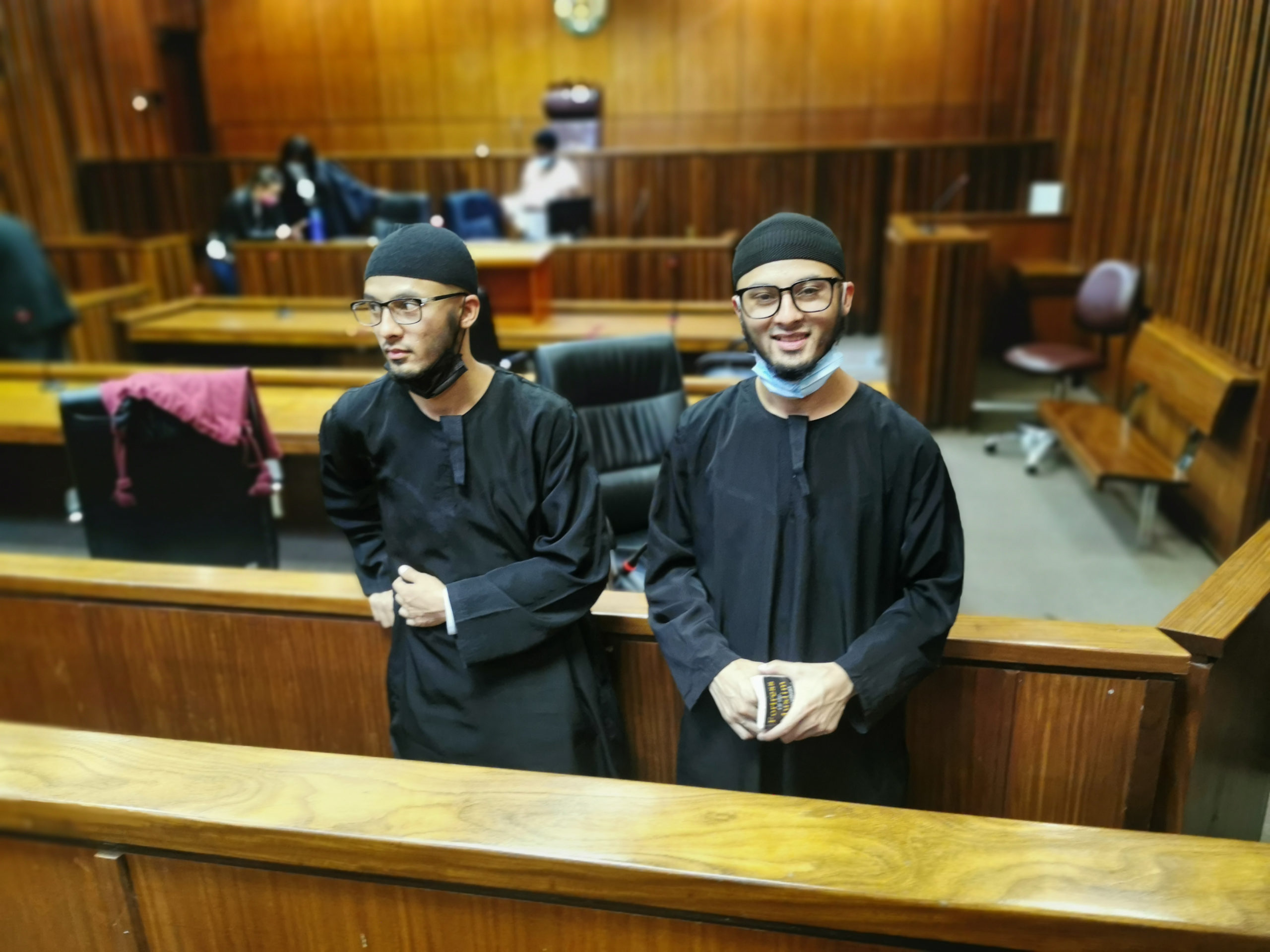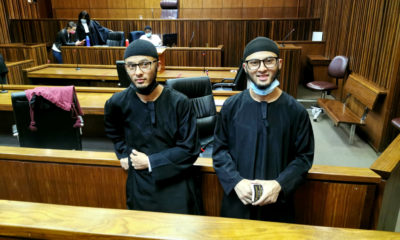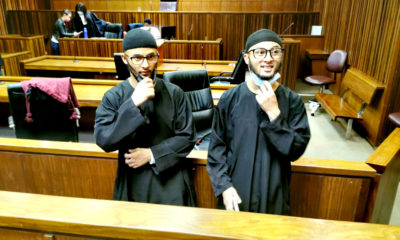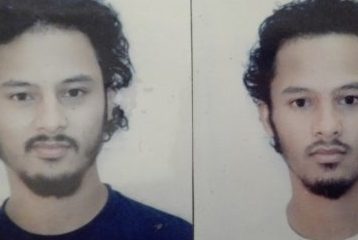
News

Is there a victory in the Thulsie twins deal?
Security experts have cautioned that South Africa faces a monumental battle against terrorism in spite of communal organisations this week hailing the successful conviction of the notorious terrorist twins, Tony-Lee and his brother Brandon-Lee Thulsie.
Following a plea bargain in the Johannesburg High Court, the Johannesburg twins this week pleaded guilty to trying to join the Islamic State in Syria and of conspiring to carry out terrorist attacks in its name in South Africa.
Major fears of terrorist attacks at Jewish installations including schools and shuls reverberated at the time of their arrest in 2016, sending shockwaves through the community.
Tony-Lee was sentenced to 11 years and Brandon-Lee to eight. The sentences were each reduced by the five years and seven months they had already spent in prison since their arrests in Johannesburg in July that year.
The convictions and sentences ended a protracted legal battle of endless postponements, including a recent attempt by the Thulsies’ attorneys to have the case returned to the regional court where it had begun or have it thrown out of court.
“This is a watershed moment,” said Zev Krengel, the vice-president of the South African Jewish Board of Deputies adding that the Board was satisfied that justice had been served.
“We’re grateful that the authorities, with international help, were able to intercept, arrest, investigate, and successfully prosecute these terrorists. South Africa is a safer place against this threat of radical Islamic terrorism,” he said.
The “Thulsie Twins” twice tried to leave South Africa in 2015 – once via Mozambique – to travel to Syria to join Islamic State in Iraq and the Levant (ISIL). According to reports, they were blocked each time by authorities tipped off by family members.
“From what we understand, it was an important plea bargain in which vital information was handed over,” said Krengel, “It’s a harsh sentence which sends a strong message that any form of terrorism – even if you’re planning a terror attack – won’t be tolerated. The case has set a precedent that if you get intercepted, you’re going to lose a decade of your life.”
The Thulsies plotted to carry out terrorist attacks against the enemies of ISIL in South Africa, including Western embassies and diplomats, Jewish interests, and mosques of the Shia Islam sect.
The original 11 counts against them under the Protection of Constitutional Democracy against Terrorist and Related Activities Act (POCDATARA) were reduced to three.
The charge of “conspiring to carry out terrorist attacks in South Africa” was applied only to Tony-Lee, which was why he got the longer prison sentence. He was accused of plotting, with an individual known only by the alias Abu Harb, to attack “Shia mosques, Jewish events and/or conferences, and foreign interests at airports”.
Brandon-Lee was charged with downloading the manual “How to Survive in the West; A Mujahid Guide (2015)”, which teaches how to conduct jihad, including instructions for acquiring weapons, making explosives, and evading arrest.
Security experts said this week that legally, it was the best outcome for the State as it finally put to rest a case which had been dragging on for too long.
Unfortunately, though, the case highlighted several weaknesses in current legislation related to terrorism in South Africa, which makes it difficult to secure successful convictions.
Dr Barend Prinsloo, senior lecturer in security studies at the School of Government Studies at North-West University said, “One of the major weaknesses is that the POCDATARA bill allows for the inclusion of mens rea arguments. Such arguments are based on the thought processes and speculation about the intention of the accused to commit a crime (conspiring), and these are notoriously difficult to prove in court. As such, the sentences were quite hefty since neither of the twins actually acted on their “conspiracy to carry out terrorist attacks in the name of ISIS/L”.
He said it was a victory for the State to get the accused essentially to admit to actus reus (the intention or actual doing of the crime). But he said the State’s case would have been much stronger had there been a solid definition of terrorism in legislation.
“The legal fraternity relies on such definitions to prove that any accused’s deeds or acts conform to a specific definition,” he said.
Legislation should also consider the inclusion of definitions of “extremist activities” rather than terrorism as the nucleus for the proof of conduct, he said.
Should we be concerned? “Yes and no,” Prinsloo said.
“South Africa has sent troops to Mozambique to counter the extremist insurgency in the northern parts of the country. This indicates a deeper understanding by the state of the strategic consequences of extremism if left to proliferate.”
However, it’s a legal test case and very difficult for the State to prove actus reus, Prinsloo said. “More importantly, we should be concerned if the State doesn’t review its current legislation related to terrorism and doesn’t include well-sourced and thorough definitions of terms such as “extremism”, “radicalisation”, and/or “reactionary change [of society]”, to name a few.
Does South Africa have its finger on the pulse as far as these types of terrorists are concerned?
“No it doesn’t, neither does it extend to other types of extremism, from the left and the right of the political spectrum, or foreign based,” Prinsloo said.
Jasmine Opperman, a security consultant specialising in extremism and political violence from the Armed Conflict Location & Event Data Project, said terrorism wasn’t an easy legal process, and to prove intent beyond doubt remained a highly complicated matter subject to interpretation.
Though it was important to acknowledge the completion of the case, there were still many concerns. “How will the Thulsies be when they get out of prison? This remains to be seen, and it’s a concern,” she said.
Jevon Greenblatt, the head of operations of the Community Security Organisation in Gauteng, said the Thulsies got a sweet deal.
“We don’t know the exact details of the plea bargain, but I believe the sentence was light if you look at what they were conspiring to do,” Greenblatt said.
“Our concern is what’s going to happen to them when they’re released from prison? Have they become more radicalised in prison? They appeared in court wearing a keffiyeh, making a political statement. Are they now poster boys and role models for future extremists?”
Greenblatt said he was concerned that the sentencing wouldn’t serve as a deterrent.
Willem Els, security analyst at the Institute for Security Studies, said the case provided solid proof that ISIS was active in South Africa, whereas before it was just speculation. He cautioned that there were many “red lights”.
“The Thulsie twins were converts who were targeted and radicalised. This is the strategy of ISIS and other radical groups, so one wonders how many other recruitment drives are out there. We don’t know, and there’s a serious lack of intelligence capacity, operational support, and guidance.
“The NPA [National Prosecuting Authority] and the Hawks have realised the value of good investigation. However, if intelligence isn’t up to scratch, these radical elements know they will walk free. We have to raise our game, this is the reality in the country.”
Els also expressed concern about whether the Thulsies would be successfully rehabilitated during their incarceration to prepare them to reintegrate into public life.
“If not, they will continue their radical actions, and this poses a serious challenge to intelligence operatives already under severe strain.”











yitzchak
February 10, 2022 at 12:43 pm
The political murders of Ron and Rachel Saunders are yet to be resolved